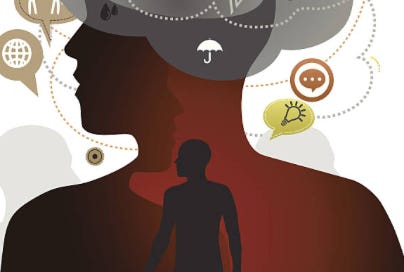The Impact of Cognitive Distortions
Are you aware of the impact cognitive distortions have on your well-being?
As many know, cognitive behavioral therapy can be helpful for adverse conditions. When experiencing stress, anxiety, addiction or other afflictions, cognitive behavioral therapy can help remedy your affliction.
Something happening in our society contrary to effective cognitive behavioral therapy is cognitive distortion. It’s less obvious and obtrusive than other afflictions, but can be harmful nonetheless. People are entrained to allow cognitive distortions through media and “news” programs. Cognitive distortion can even happen through biases within college studies and established institutions.
How do cognitive distortions show up in one’s thinking? There are many that can be listed. Let’s start with some of the most common cognitive distortions. There’s binary thinking — following “either one or the other” thinking, rather than seeing the many possibilities in between opposing points of view. There’s overgeneralization — concluding something beyond what can be logically deduced from the known information. There’s assuming that you know where another person (or group) is coming from without actually knowing for sure.
These cognitive distortions become weaved into habits. These kinds of habits influence people in how they think, how they discuss (and argue), and how they make sense of what’s happening around them. Habits strewn with cognitive distortion decrease logical rationalization and increase uncontrolled emotional reactivity.
Have you noticed any of these cognitive distortions creeping into your habits? Have you considered the adverse effects of cognitive distortions? Are you able to notice the influence of cognitive distortions on anyone in your network?




